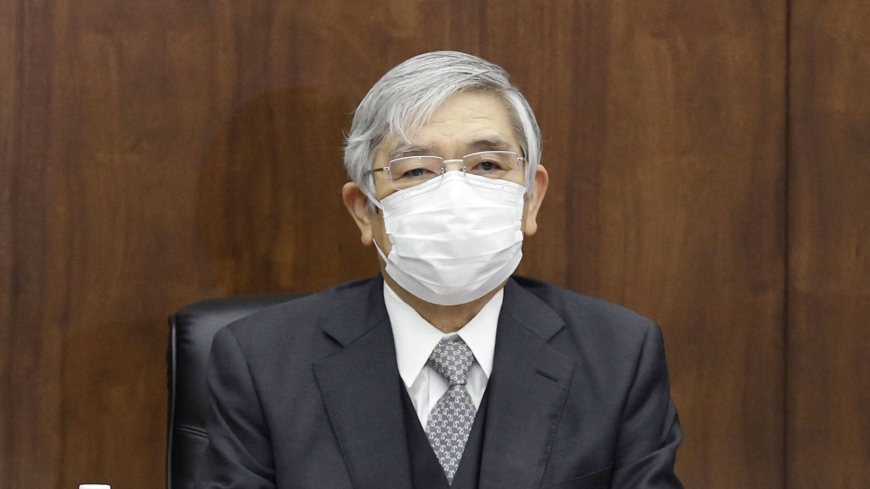The Bank of Japan decided Friday to scale back its COVID-19 funding support as financing conditions have been improving among large firms, while leaving its ultraloose monetary policy unchanged amid uncertainty over the omicron variant of the coronavirus.
After a two-day policy-setting meeting, the BOJ said it will reduce its buying of commercial paper and corporate bonds issued by large firms but retain until September a program that was due to end in March to support small and midsize firms facing more difficult funding conditions.
The Japanese central bank said, as widely expected, that it will continue to set short-term interest rates at minus 0.1% while guiding 10-year Japanese government bond yields around zero percent.
The BOJ is seen as one of the last among central banks in major economies in dialing back emergency stimulus and shifting to tightening policy as price increases are subdued and its 2% inflation target is still far off.
On Thursday, the Bank of England became the first among central banks in the Group of Seven industrialized nations to raise interest rates since the pandemic.
The U.S. Federal Reserve signaled three rate hikes in 2022 with a faster-than-expected end to its bond-buying to cope with surging inflation that came with an economic recovery and supply chain disruptions. The European Central Bank took a more cautious approach to tapering pandemic stimulus.
“Financial conditions in Japan have improved on the whole, despite the continued significant impact of the novel coronavirus on domestic and overseas economies,” the BOJ said in a post-meeting statement.
The BOJ’s pandemic funding support program consists of purchases of commercial paper and corporate bonds issued by large firms with a combined limit of ¥20 trillion ($176 billion), and the provision of cheap funds to financial institutions extending loans to financially struggling smaller firms.
From April, the BOJ will gradually reduce commercial paper and corporate bonds purchases to the pre-pandemic levels of around ¥2 trillion and ¥3 trillion, respectively.
Higher energy and raw material costs have affected Japan in recent months as the country relies heavily on imports, with the impact magnified by a weak yen.
Wholesale prices have surged and consumers are gradually feeling the pinch from higher gasoline and kerosene prices. Some companies, especially in the food industry, have decided to raise prices but Japanese firms are reluctant to immediately pass on such costs to consumers.
The relatively slow and limited pass-through comes at a time of weak consumer demand and tame wage growth, bolstering the case for the BOJ to retain its accommodative policy for an extended period.
The lifting of a COVID-19 state of emergency nationwide on Oct. 1 has led to more economic activity, a relief to service providers who have lagged in the recovery from the COVID-19 fallout. The recovery remains uneven between manufacturers and nonmanufacturers, with smaller firms seen facing more difficult funding conditions.
“Japan’s economy has picked up as a trend, although it has remained in a severe situation due to the impact of COVID-19 at home and abroad,” the BOJ said, sticking to its previous assessment.
The discovery and spread of the omicron variant has added a layer of uncertainty over its potential impact on the global economy.
Leaving its asset-buying program intact, the BOJ said it will continue to purchase exchange-traded funds with an upper limit of ¥12 trillion a year. In what some BOJ watchers have called “stealth tapering,” the BOJ removed its annual purchase target of ¥6 trillion in March to make its buying flexible.
In a time of both misinformation and too much information, quality journalism is more crucial than ever.
By subscribing, you can help us get the story right.
SUBSCRIBE NOW


